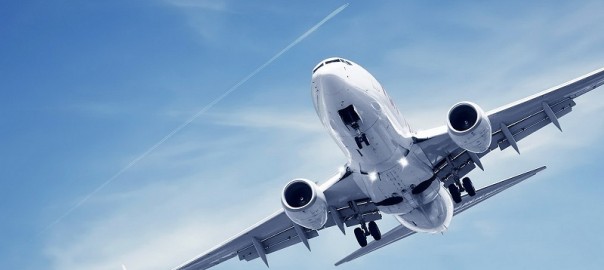Principally, the Turkish civil aviation legislation is prepared by two authorities in Turkey: Directorate General of Civil (“DGCA”) and the General Directorate of State Airports Authority (“GDSAA”). DGCA regulates and ensures the development of the civil aviation activities therefore GDSAA performs the management of Turkish airports and controls the Turkish airspace as a state owned enterprise since 1984.
In consideration of the duties and responsibilities of each two above mentioned authorities, the SLOTs regulations have been mentioned on laws and directives drafted by the DGCA until 17 June 2010. After 17 June 2010, the legal authority for SLOT application was transferred to GDSAA by the Ministry of Transport (restructured and named as Ministry of Transport, Maritime Affairs and Communication as of 01 November 2011).However, in current situation, the legal responsibility for SLOT applications is at the DGCA but the legal power is still exercised by GDSAA.
The principals that set out the legislative framework for SLOTs is as follows;
- Decision of the Council of Ministers 2003/5930, 24 July 2003
- Law No: 5431 Law on the Duties and Organization of the Directorate General of Civil Aviation, 10 November 2005.
- GDSAA Directive on SLOT Applications (“Directive”)
As a step on the path to European Union membership, Turkey had has the resolution and determination to rapidly fulfill its obligations in order to start accession negotiations at the earliest time and participate in the European Union’s enlargement dynamics.
To this end, in National Program for the Adoption of the Acquis which has been declared through the decision of the Council of Ministers, numbered 2003/5930. Accordingly in transportation policy of Turkey, a strategy plan and program concerning Turkey’s main transport infrastructure needs within the scope of the Transport Main Plan Strategy has been decided to be determined by the Ministry of Transport, with the cooperation of the Undersecretariat of the State Planning Organization (SPO), the Ministry of Settlement and Public Works, the Ministry of the Interior, and the Ministry of Energy and Natural Resources. EU legislation concerning Trans-European Networks (TEN) Guidelines have also been taken into account during studies to determine the infrastructural objectives of the Transport Main Plan Strategy.
This strategy document including the adoption and implementation of EU legislation on air transport and necessary legislative changes to adopt Council Regulation (EEC) No 95/93 of 18 January 1993 on common rules for the allocation of SLOTs at community airports has been proposed to be approved by the Minister / Council of Ministers on 31 December 2004 and to enter into force on 31 December 2005.
After and as the requirement of the Decision of the Council of Ministers 2003/5930, the Turkish parliament has enacted the law, Law on the Duties and Organization of the Directorate General of Civil Aviation to regulate the elements related to the organization, duties, authorization and responsibilities of the DGCA with special budget, associated with the Ministry of Transport and Communications, and holder of public corporation status.
By this law, the first writing regulation in relation to the SLOT applications has been provided and the Air Transportation Department of the DGCA has been appointed as the unit responsible to ensure the SLOT application on aerodromes with intensive traffic and to make and to follow up the necessary arrangements in this matter. After the decision of the Ministry of Transport on 17 June 2010, the GDSAA has been designated to ensure the SLOT allocations and applications. Today the only secondary legislation in which the SLOT applications are defined in Turkish Law is the Directive.
The Directive has been promulgated to the purpose of setting out the principles and procedures in SLOT applications at scheduled or coordinated airports. The scheduled or coordinated airports and air carriers using those airports, their representatives, airport operators, air traffic service units, commissions and committees evaluating the demands of the SLOT with the tariff organizers and coordinators, and other relevant persons, institutions and organizations are subject to the Directive in SLOT applications within Turkey.
Pursuant to the article 11/1 of the Directive, at the beginning of each scheduling period, series of SLOTs of the previous year’s same scheduling period are placed in the SLOT pool.
Article 11/1 shall not apply when the following conditions are satisfied;
(a) a series of SLOTs has been used by an air carrier for the operation of scheduled and programmed non-scheduled air services, and
(b) the series of SLOTs in question has been operated by that air carrier for at least 80 % of the time during the scheduling period for which it has been allocated.
In such case that series of SLOTs shall entitle the air carrier concerned to the same series of SLOTs in the next equivalent scheduling period, if requested by that air carrier. In a situation where all SLOT requests cannot be accommodated to the satisfaction of the air carriers concerned, preference shall be given to commercial air services and in particular to scheduled services and programmed non scheduled air services. In the case of competing requests within the same category of services, priority shall be given for year round operations or to air carriers entitled to use the coordinated airport as the base. Re-timing of series of SLOTs before the allocation of the remaining slots from the pool to the other applicant air carriers shall be accepted only for operational reasons or if SLOT timings of applicant air carriers would be improved in relation to the timings initially requested.
If a requested SLOT cannot be accommodated, the coordinator shall inform the requesting air carrier of the reasons therefore and shall indicate the nearest available alternative slot. The coordinator shall, in addition to the planned SLOT allocation for the scheduling period, endeavor to accommodate single SLOT requests with short notice for any type of aviation, including general aviation. To this end, SLOTs remaining in the pool or SLOTs available at short notice may be used.
As it is clearly recognized the Directive’s relevant articles that set out the rules and conditions for allocation of SLOTs in Turkey are fully adapted from EU Regulation 95/98.
Pursuant to the article 12/1 of the Directive, transfer of SLOTs shall be provided in following conditions:
(a) By an air carrier from one route or type of service to another route or type of service operated by that same air carrier;
(b) Between parent and subsidiary companies, and between subsidiaries of the same parent company,
(c) As part of the acquisition of control over the capital of an air carrier,
(d) In the case of a total or partial take-over when the slots are directly related to the air carrier taken over
Exchange of SLOTs shall only be provided one for one, between air carriers. The transfers or exchanges referred above shall be notified to the coordinator and shall not take effect prior to the confirmation by the coordinator. The coordinator shall decline to confirm the transfers or exchanges if they are not in conformity with the requirements of the Directive and if does not satisfy the criterias of that airport operations would not be prejudiced, taking into account all technical, operational and environmental constraint.
SLOTs allocated to a new entrant may not be transferred for a period of two equivalent scheduling periods, except in the case of a legally authorized takeover of the activities of a bankrupt undertaking. SLOTs allocated to a new entrant may not be for a period of two equivalent scheduling periods, except in order to improve the slot timings for these services in relation to the timings initially requested.
The airports subject to SLOT applications in Turkey are defined in article 16 of the Directive as follows:
(a) Istanbul Ataturk Airport, scheduled or coordinated airport in summer and winter
(b) Antalya Airport, coordinated in summer, rescheduled in winter
(c) Ankara Esenboğa, İzmir Adnan Menderes,Milas-Bodrum, Dalaman, scheduled in summer and winter
(d) Istanbul Sabiha Gökçen Airport, scheduled in summer and winter as of 2010
Request for SLOT allocation and change at a coordinated airport for scheduled and programmed non-scheduled flights shall be approved by the coordinator providing that the request is based on operational reasons and rationale.
Slot requests for scheduled flights are evaluated according to the calendar adopted and implemented by IATA all over the world. The requests not in conformity with this calendar are not considered appropriate. The requests of air carriers, not using the airport as base for long stay exceeding 3 hours for passenger transport, 5 hours for cargo transport require the approval of the department responsible for the parking lot. Parking lot availability shall in no case mean that the SLOT hours are appropriate.


